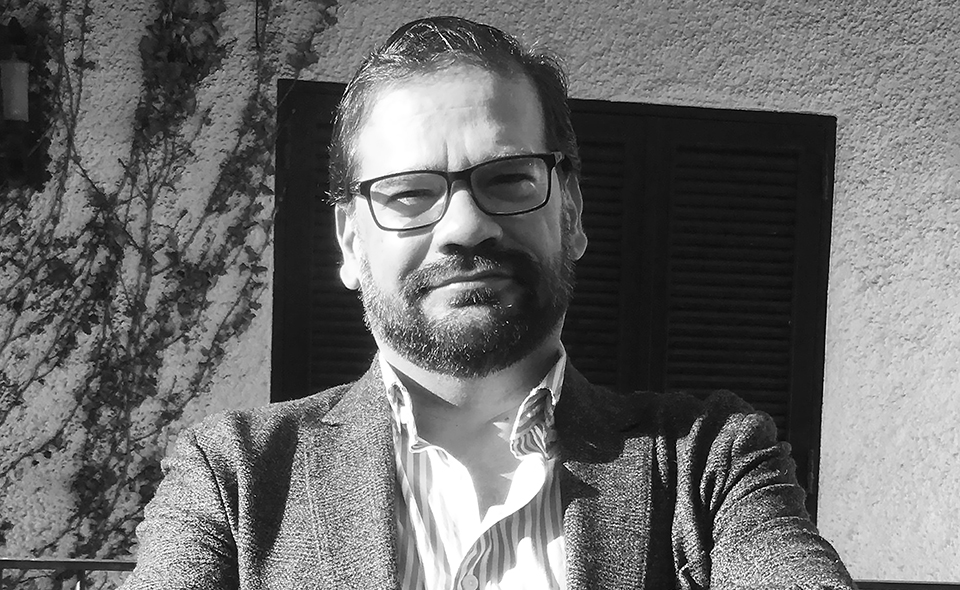Nuno Cardoso-Ribeiro, a highly experienced Portuguese lawyer and a major voice in the legal representation of families and children, outlines some of the unique facets of the law in this feature, drawing upon 20 years of experience in family law. What are the unique aspects of divorce and family law in Portugal, and how is legislation in the sector continuing to develop today?
In Portugal, what does the process for divorce typically look like?
Most divorce cases in Portugal are by mutual agreement, and the same applies to parental responsibilities regulations. Both processes may be done outside the courts, in the Civil Registry Offices, which allows them to be swifter and cheaper. The role of the lawyer, in such cases, is to act as a mediator, alone or in collaboration with a colleague, to ensure an agreement that answers both parties demands and needs.
Unfortunately, such an agreement is not always possible due to disputes regarding property or parental conflict. In those instances, there is a need to resort to a court of law – but even then, we remain alert to the possibility of promoting a fair transaction, thus bringing the judicial process to an end, especially in disputes which involve children. The promotion and diffusion of practical alternatives for out-of-court settlement of disputes involving children is, in fact, one of the statutory objectives of the Association of Family Lawyers I co-founded in 2020 and that I currently preside.
As it is often said, “time of the children is not the time of the court”; they do not conform to one another. Parents risk losing the best of their children’s childhood to fruitless disputes, to the detriment of all concerned parties, especially the children. Our job is also to prevent this sad reality.
How are joint finances and property typically divided in a divorce? How can a lawyer help to ensure a fair outcome?
As a rule, joint finances and property are divided 50/50, according to the so called “rule of the half”. The biggest challenge is to ensure the correct identification and qualification of all the joint assets, according with the applicable property regime.
In Portugal – with a few exceptions (in which the law imperatively establishes the separation regime) – the future couple may choose, before marriage, which property regime they want. They can even set their own rules, different from the ones established in the model property regimes set in the Civil Code, within the limits of the law. In practice, this means that the parties may choose which assets will be shared or which are excluded from the communion, regardless of whether they were acquired before or during the marriage. So, of course, this makes the matter of asset qualification a challenge.
As it is often said, “time of the children is not the time of the court”; they do not conform to one another.
It is also important to verify which debts were paid, which estate was responsible for their payment (one of the spouses’ own estate or the joint estate) and which estate effectively ensured the payment, since this may originate an entitlement to compensations between estates or between spouses. The same applies to other compensation cases between spouses.
A particularly important example of theses compensations is the one recognised to the spouse who, for the sake of the couple’s common life, has excessively renounced to the satisfaction of their own interests, particularly those of a professional nature, with important patrimonial losses. This allows a fairer asset distribution between the couple, recognising the effort of the spouse who gave up work in order to secure the care of the children or the domestic chores.
Even so, the Portuguese legal regime leads to outcomes less advantageous to the non-working spouse (or to the spouse with a lower income) than other countries, since the state pensions received after divorce cannot be shared, regardless of the property regime. Similarly, the conditions to recognise spousal maintenance rights to the ex-spouse are quite strict.
In Portugal, how is parental international child abduction legally defined? How are these cases typically resolved?
In Portugal, like in the vast majority of western states, parental international child abduction is defined mainly by the Hague Convention of 1980, on the Civil Aspects of International Child Abduction – in short, there is an international child abduction when a child is taken or retained across an international boarder, away from their habitual residence, without the consent of the parent(s) with the right of custody. The Brussels ii Regulation also refers to this definition, adding important rules regarding the international competence of the Member-States Courts.
However, there is also space for national differences – with the biggest specialty, in Portugal, residing in the interpretation of the concept of “parental responsibility” and “right of custody”, since the latter is not used by our national law. Instead, as a legal rule, both parents will have the power to decide the big questions concerning the child’s life (the so called “exercise of parental responsibilities regarding matters of particular importance”), regardless of the residency model established in the parental responsibilities regulation.
In other words, despite the fact that the child habitually lives with one of the parents, both must decide together in which country their child will live. To put it simply, if we were to translate the Portuguese solution to the legal language used abroad, both parents would have a shared right of custody as a rule. Of course, this solution has a big impact on parental international child abduction cases, as it deems illegal almost any unilateral relocation or retention of the child outside their country of residence, enabling the activation of the Hague remedies.
The Portuguese legal regime leads to outcomes less advantageous to the non-working spouse (or to the spouse with a lower income) than other countries, since the state pensions received after divorce cannot be shared, regardless of the property regime.
Personally, I find that the Portuguese legal solution has many virtues. The decision regarding a child’s country of residence should not be taken lightly. After all, the change of country will have a significant impact on the child, determining changes in their upbringing and development. It should never, in any circumstance, be used as a means to keep one of the parents away from the child.
The attribution of the decision-making power to both parents allows for greater control over the decision – and in the end, if the parents cannot reach an agreement on the intended change of residence, the decision will be made by a judge, thus better guaranteeing its adequacy to the best interests of the child.
What is the percentage of foreign clients that you work with? And what challenges does this pose in terms of having to deal with different jurisdictions?
In our office, over half our clients are foreign or are involved in an international affair. Our team is composed by colleagues proficient in English, Spanish and French, and/or with a good written and oral comprehension of German. This is fairly important, since we deal with foreign clients, state entities, colleagues and documents on a daily basis, with which we must be able to communicate flawlessly for obvious reasons.
Different jurisdictions always pose an additional challenge, first and foremost because it requires specific knowledge and understanding, however minimal, of the functioning of foreign legal solutions and law systems. Many cases also demand international cooperation between colleagues in different jurisdictions, to ensure the best possible outcome to the client. For both of these purposes, we at Divórcio & Familia ensure an active participation in international lawyers’ organisations, such as the International Academy of Family Lawyers (IAFL) and the Union Internationale des Avocats (UIA), that I just recently joined, which gives us an excellent basis both for experience sharing and network building.
It may also be a challenge to effectively manage expectations. Sometimes clients want results based on their previous experiences in other jurisdictions that quite simply are impossible to replicate under the Portuguese jurisdiction. In fact, many Portuguese legal solutions are strikingly different from those prescribed by other European Union member states, let alone the US or UK – the different approach to the definition of parental responsibilities and spousal maintenance, as we have seen above, are but a few examples.
In our office, over half our clients are foreign or are involved in an international affair.
Therefore, it is very important to thoroughly inform the clients of their rights under the Portuguese law in order to offer them a sense of security regarding the possible outcomes of their legal proceedings. It is also important to give them the space to seek counselling abroad and acquire a broad picture of their rights under different jurisdictions, so they may take action wherever they find the most convenient solution to their personal interests. In Portugal and all other EU member states, the Regulation (CE) no. 593/2008, also known as Rome I, recognises the parties’ freedom to choose the applicable law, even if it is not the law of a member state – a very important faculty to consider, for example, in marriage and divorce by mutual agreement cases. Parallel solutions may also apply in foreign countries, with different international private law systems.
How many parental international child abduction cases do you handle each year?
Being a relatively small country, the Portuguese Central Authorities register about 80 cases of international child abduction cases per year (divided into 40 children illegally retained in Portugal, and 40 children illegally taken abroad). Our office handles a significant part of these cases due to our vast experience in the area.
Acknowledging our expertise, we are very proud to be recommended by different international charities devoted to help parents and other victims of international child abduction, such as Reunite International, MiKK eV (International Mediation Centre for Family Conflict and Child Abduction) and GlobalARRK.
What do you find most rewarding about your role as a Family and Divorce Lawyer?
Family and divorce law disputes will always pose difficult challenges to the parties involved, since these disputes relate to the core of their personal lives. Challenging as it may be, it is nevertheless very rewarding to help and advise people when they need it the most, as well as guaranteeing a fair outcome to the children involved.
At Divórcio & Família, the best interests of the children always come first. We try to adopt, as much as possible, a pedagogical attitude towards the parents, encouraging them to make compromises and collaborate with one another in order to protect their child’s interests. After all, their relationship as a couple may have come to an end, but their relationship as parents and educators remains.
Thinking about the need to sensitise other family lawyers to the importance of promoting children’s rights and their harmonious development, as well as the need to offer the skills and knowledge to do so, I also co-founded the Family and Children Lawyers Association (AAFC) on 26 June 2020.
Challenging as it may be, it is nevertheless very rewarding to help and advise people when they need it the most, as well as guaranteeing a fair outcome to the children involved.
What is the AAFC’s main goal and how does it help to promote children’s rights?
Most of the time, a parent seeks legal advice to regulate parental responsibilities based on their own desires: they want to spend more time with their children or, in what seems a necessary consequence, they want the children to spend less time with the other parent. This last claim may even be based on children’s behaviours and reports (for example, reports of abuse or mistreatment).
Of course, the analysis of these behaviours and reports, as well as the expertise to advise on the best model of residence/visitation according to the child’s age, parental relationship dynamics and specific needs, requires scientific knowledge that one does not learn in law school. While the courts consult with the scientific expertise of psychologists and other experts in the decision process, the truth is that such support is not always enough. At the end of the day, the family lawyer’s opinion on the best regime ends up having significant weight in the final decision.
In view of this reality, one of the AAFC’s main goals is to provide our associates the multidisciplinary training deemed crucial for the proper fulfilment of the specific role of the family lawyer. I believe that the offer of these training opportunities is especially important in the Portuguese context, where no specific preparation is legally required to practise family and child law (which I personally find unacceptable) and where credible institutions and courses aimed at the multidisciplinary training of lawyers is very difficult to find – after all, we are talking about areas of expertise as technical and advanced as psychology, paediatrics and child psychiatry, among others.
Our mission, nonetheless, goes beyond specialised training: we aim to bring together all legal professionals who act in this area to promote ethical and deontological values able to guide our professional activity, thus ensuring the promotion of the important interests we are intended to safeguard – those of the children. In the future, we hope this goal leads to an intervention at the legislative level, both through the regulation of family law codes of conduct and through the amendment of family and succession law.
How do you see the role of the child lawyer?
In addition to the ethical obligation of lawyers who take part in family and children court cases to defend children’s best interests, there are also some of us who are called upon to play the role of the child’s lawyer. This prerogative results from the European Convention on the Exercise of Children’s Rights, which recognises the child’s right to be represented by a lawyer in cases where a conflict of interests precludes the parents to represent the child.
[ymal]
Despite the fact that this prerogative is duly regulated in national law, the appointment of a child’s lawyer, either directly by the court or by the child’s and/or the parents’ initiative, is still rare. However, it is a part of an important battery of child participation rights (as is also the child’s right to be consulted and express his or her views in proceedings before a judicial authority affecting him or her), of which the Portuguese magistrates and lawyers are increasingly aware.
In this sense, the child’s hearing in judicial proceedings is increasingly frequent, even when the child is not yet 12 years old. Frankly, this is good news, as it is very important to ensure children do not see the judicial proceedings as an imposition to their life that is totally divorced from their reality, consideration and feelings. It can only be a good thing if children feel safe to participate and be heard, understanding that they can speak their mind truly and without guilt, as the process outcome does not rely on their will, but rather on the safeguarding of their rights.
To minimise the triggering of feelings of anxiety and guilt in the children during the audit, namely the aggravation of loyalty conflicts between parents, our magistrates receive specific training to successfully lead the child’s hearing and work with the assistance and support of other specialised professionals, including psychologists, doctors and social workers. As discussed above, we at the AFFC hope to provide our associates with equivalent training, so that the children may be accompanied at their hearing by their own lawyers.
Nuno Cardoso-Ribeiro, Attorney
Av. Dom João II 35 5E, 1990-083 Lisboa, Portugal
Tel: +351 218 952 028 | +351 924 030 919
Nuno Cardoso-Ribeiro has been a divorce and family lawyer since 2000 and is both co-founder and president of the board of the Portuguese Association of Family Lawyers. He is also a fellow at the International Association of Family Lawyers (IAFL) and a member of the Union International des Avocats (UIA). In addition to authoring multiple articles on divorce and family law, which are regularly published in Portuguese national and regional newspapers, Nuno is also a frequent speaker on family and labour law at a variety of conferences and events. His practice focuses primarily on divorce and child custody cases.
Divórcio & Família is a family and divorce law firm coordinated by Nuno Cardoso-Ribeiro. Its team provides specialised legal support in divorce, asset division, child and custody arrangements, spousal maintenance, family home and inheritance issues, offering a variety of additional globally accessible services in the family and divorce law space.





















